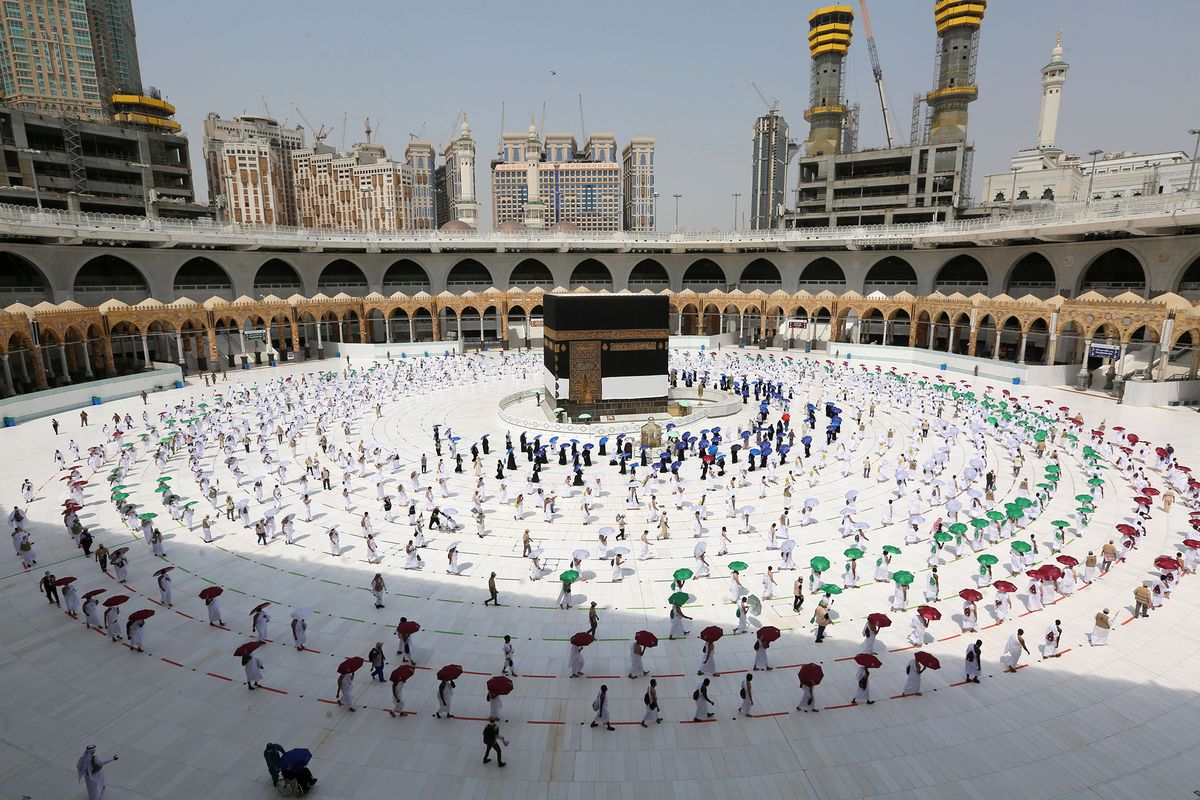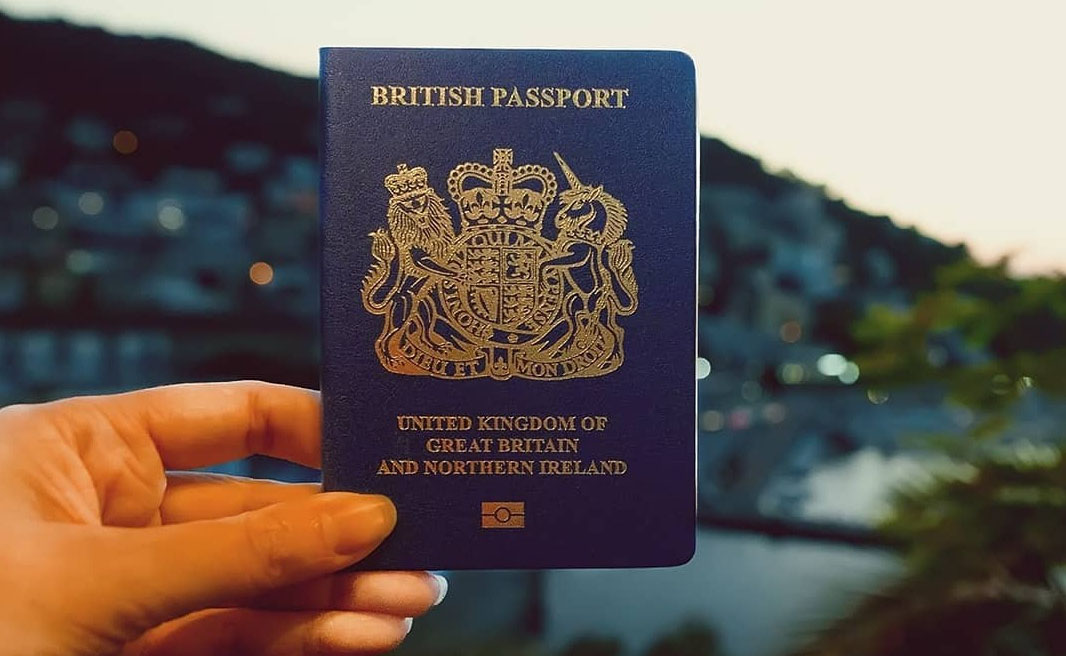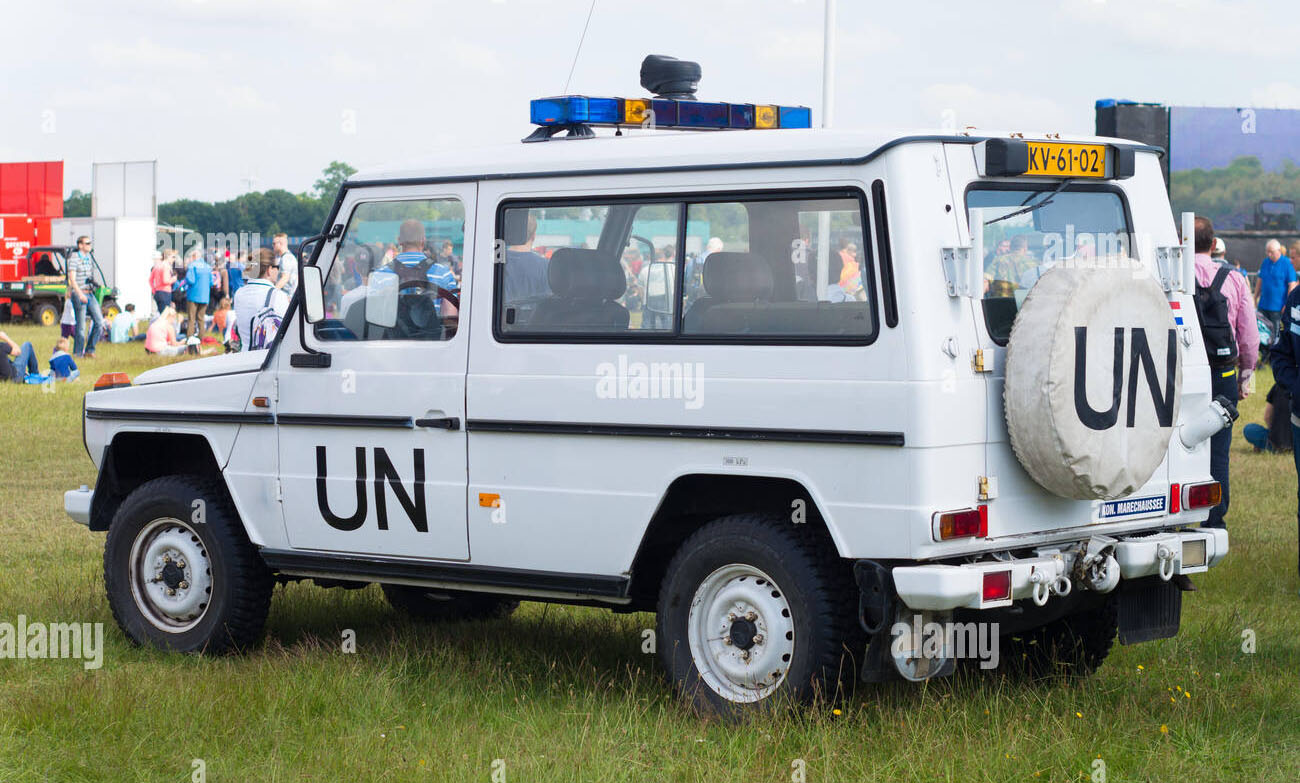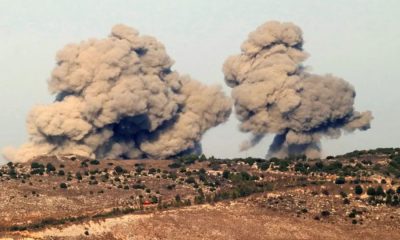International
Israel – Hamas war: Gazans unable to travel for Hajj pilgrimage

Israel – Hamas war: Gazans unable to travel for Hajj pilgrimage
This year’s Hajj pilgrimage came against the backdrop of the raging war in the Gaza Strip between Israel and Palestinian militants.
The war has pushed the entire Middle East to the brink of a regional war between Israel and its allies on one side and Iran-backed militant groups on the other.
Palestinians in the coastal enclave of Gaza were not able to travel to Mecca for Hajj this year because of the closure of the Rafah crossing in May when Israel extended its ground offensive to the strip’s southern city on the border with Egypt.
Palestinian authorities said 4,200 pilgrims from the occupied West Bank arrived in Mecca for Hajj.
Saudi authorities said 1,000 more from the families of Palestinians killed or wounded in the war in Gaza also arrived to perform Hajj at the invitation of King Salman of Saudi Arabia.
The 1,000 invitees were already outside Gaza – mostly in Egypt – before the closure of the Rafah crossing.
More than 1.5 million pilgrims from around the world have already amassed in and around Mecca for Hajj, and the number was still growing as more pilgrims from inside Saudi Arabia joined.
Saudi authorities expected the number of pilgrims to exceed two million this year.
READ ALSO:
- South Africa’s Ramaphosa elected president
- Sudan’s army repels major assault on el-Fasher; kills RSF commander
- Supreme Court gun ruling stuns Las Vegas shooting survivors
The pilgrimage is one of the Five Pillars of Islam, and all Muslims are required to make the five-day Hajj at least once in their lives if they are physically and financially able to do it.
It is a moving spiritual experience for pilgrims, who believe it absolves sins and brings them closer to God, while uniting the world’s more than two billion Muslims.
It’s also a chance to pray for peace in many conflict-stricken Arab and Muslim countries, including Yemen and Sudan, where more than a year of war between rival generals created the world’s largest displacement crisis.
For many Muslims, the Hajj is the only major journey they make in their lifetime. Some spend years saving up money and waiting for a permit to embark on the journey in their 50s and 60s after they have raised their children.
The rituals during the Hajj largely commemorate the Quran’s accounts of Prophet Ibrahim, his son Prophet Ismail and Ismail’s mother Hajar – or Abraham and Ismael as they are named in the Bible.
Male pilgrims wear an ihram, two unstitched sheets of white cloth that resemble a shroud, while women dress conservative, loose-fitting clothing with headscarves, and forgo makeup and perfume.
They have been doing the ritual circuit around the cube-shaped Kaaba, counter-clockwise in the seven-minaret Grand Mosque since arriving in Mecca over recent days.
Saudi authorities have adopted security restrictions in and around Mecca, with checkpoints set up on roads leading to the city to prevent those who don’t have Hajj permits from reaching the holy sites.
Israel – Hamas war: Gazans unable to travel for Hajj pilgrimage
Africanews
International
UK announces new passport application fees starting April 2025

UK announces new passport application fees starting April 2025
The UK government has confirmed it will introduce new fees for passport applications beginning on April 10th, 2025.
The changes, which are still subject to parliamentary approval, will see a rise in costs for both online and paper applications, affecting adults and children alike.
According to the UK Home Office, the adjustments will apply to both domestic and overseas passport applications.
The fee increases, as stated, are part of an ongoing effort to ensure the passport system is financially self-sustaining, reducing the need for funding from general taxation. The Home Office clarified that the government does not make any profit from the fees.
Fee increases for domestic applications
Starting April 10th, 2025, the fee for a standard online application within the UK will rise for both adults and children. The cost for an adult’s application will increase from £88.50 to £94.50, while for children it will go up from £57.50 to £61.50.
Postal applications will also see an increase, with the adult fee rising from £100 to £107 and the child fee increasing from £69 to £74.
READ ALSO:
- Mohbad’s brother, Adura, arrested by police in Lagos
- UN staff member killed in central Gaza blast, five others injured
- Air Peace slashes Nigeria-London fare by N600,000
Charges to premium service fees
The Premium Service, which allows for passport issuance within one day, will also become more expensive.
- For adults, the fee will rise from £207.50 to £222
- For children, the fee will increase from £176.50 to £189.
This service is available for those who need a passport urgently and are applying from within the UK.
Higher costs for overseas applications
For individuals applying from overseas, the standard online application fee will also increase;
- The adult fee will rise from £101 to £108, and the child fee will increase from £65.50 to £70
- For paper applications made abroad, the adult fee will rise from £112.50 to £120.50, while the child fee will increase from £77 to £82.50.
The Home Office stated that the new fees are necessary to maintain the passport service and ensure it is financially viable. The fees contribute to covering the cost of processing passport applications, offering consular support to UK citizens overseas, and managing UK border services.
“The fees contribute to the cost of processing passport applications, consular support overseas, including for lost or stolen passports, and the cost of processing British citizens at UK borders,” the office said.
It is also related that in 2024, 99.7% of standard applications from the UK were processed within three weeks, where no additional information was required. Customers are advised to apply well in advance of their travel plans to avoid delays.
These fee adjustments are in line with guidelines from HM Treasury, which regularly reviews passport fees.
UK announces new passport application fees starting April 2025
International
UN staff member killed in central Gaza blast, five others injured

UN staff member killed in central Gaza blast, five others injured
At least one UN staffer has been killed and at least five others injured following an explosion at two UN guesthouses in Deir al Balah in the central Gaza Strip on Wednesday.
Several of the injured staffers are reported to be very severely hurt, though further details on their conditions have not yet been provided
The UN is verifying and confirming the details, including the circumstances that led up to the incident at the compound.
However, it was not due to “any action” that was being taken by UN personnel to remove “unexploded ordinance,” the head of the UN Office for Project Services (UNOPS) said during a press conference in Brussels.
The UN official’s statement clarifies that the incident did not involve any activities related to the removal of unexploded ordinance by UN personnel, and further investigation is underway to determine the exact cause and context of the event.
According to media reports, the Israeli military – which has resumed deadly strikes in the Gaza Strip, killing hundreds since Monday – has denied attacking the compound.
“These premises were well known by the Israel Defense Forces (IDF) and they were ‘deconflicted’,” UNOPS chief Jorge Moreira da Silva, said, explaining that “everyone knew who was working inside the premises – it was UN personnel, UNOPS personnel.”
READ ALSO:
- Air Peace slashes Nigeria-London fare by N600,000
- Tinubu’s state of emergency prevented Fubara from impeachment – AGF
- FG blames Fubara for bombing of oil pipeline
“This was not an accident, this was an incident,” he told journalists, adding that additional information is being collected.
“What we do know is that an explosive ordnance was dropped or fired at the infrastructure and detonated inside the building,” he said, adding it was unclear if it had been due to air-drop weapons, artillery or rocket fire.
Silva stressed that attacks against humanitarian premises are a breach of international law.
“UN personnel and its premises must be protected by all sides. The civilian population relies on the UN for lifesaving assistance, they are an essential lifeline at the time of utter tragedy and devastation,” he said.
The incident took place at around 11:30 a,m. local time on Wednesday. It followed strikes on Tuesday that resulted in some damage, and “a near miss” on Monday, Silva said.
The UN buildings are situated in an “isolated area” in Dier al Balah.
As investigations continue into the incident, the “top priority” is the evacuation of injured staff members, Silva said.
“We have stayed and delivered for the people in Gaza in the last year and a half. This was not the first time a colleague from UNOPS lost their life,” he added.
READ ALSO:
- Over 90% Nigerian land not registered, says Housing minister
- How Nigeria, Cuba broke apartheid in S’Africa – Olawepo-Hashim
- Fresh fuel price hike likely as Dangote refinery suspends petrol sale in naira
He noted that a staffer who drove aid trucks was killed around a year ago in the line of duty.
“It is very difficult to operate in Gaza…we have been challenged by the fact that international humanitarian law has not been respected,” he said.
UNOPS teams in Gaza have been carrying out critical humanitarian work, supporting hundreds of thousands of civilians severely affected by the conflict.
Their efforts include delivering essential supplies such as fuel and assisting in demining and explosive removal.
Additionally, the agency manages the so-called UN 2720 Mechanism for Gaza, which was mandated by the Security Council to accelerate humanitarian aid into the enclave.
In a related development, UN Secretary-General António Guterres reaffirmed that all parties to the conflict have a legal obligation to protect UN premises, which must remain inviolable.
In a statement issued by his spokesperson, Stephane Dujarric, the UN chief, strongly condemned the attacks and called for a full investigation.
“Today’s deadly strike brings the number of UN colleagues killed in Gaza since Oct. 7, 2023 to at least 280,” the statement noted.
Guterres emphasised that all military operations must respect and prioritise civilian protection.
“The Secretary-General stresses the need for the ceasefire to be respected to bring an end to the suffering of the people.
“Humanitarian aid must reach all people in need. The hostages must be released immediately and unconditionally,” he said.
UN staff member killed in central Gaza blast, five others injured
(NAN)
International
US judge suspends ban on transgender people in military

US judge suspends ban on transgender people in military
A US federal judge on Tuesday suspended the Trump administration’s ban on transgender people serving in the military, citing the principle of equality and dealing a blow — if only temporary — to the US president’s agenda.
Referencing the US Declaration of Independence, which states that all humans are “created equal,” Judge Ana C. Reyes suspended President Donald Trump’s late January order that excluded transgender people from the armed forces.
That suspension, however, will be put on pause until March 21 to give the government time to file an emergency stay at a higher court, according to Reyes’ decision.
The order will nonetheless come as a blow to Trump’s administration, which has made it a priority to strip protections for minorities since he took office.
Trump’s January 27 executive order stated that “expressing a false ‘gender identity’ divergent from an individual’s sex cannot satisfy the rigorous standards necessary for military service.”
Since taking office, he has also declared that the US government will only recognize two sexes — male and female — that “are not changeable.”
READ ALSO:
- Rivers: Military on high alert, says Defence minister
- Ibas: 18 things to know about Rivers administrator
- Trump removes Democrats from US Federal Trade Commission
The number of transgender people in the US military is estimated at about 15,000 out of around two million.
Reyes’s order used unusually strong language in parts to criticize the order banning transgender Americans from serving in the military.
“The Military Ban is soaked in animus and dripping with pretext,” the judge wrote. “Its language is unabashedly demeaning, its policy stigmatizes transgender persons as inherently unfit, and its conclusions bear no relation to fact.”
The judge said Trump “could have crafted a policy that balances the Nation’s need for a prepared military and Americans’ right to equal protection. They still can. The Military Ban, however, is not that policy.”
In February, US Defense Secretary Pete Hegseth issued a memo preventing transgender people from joining the military and halting gender transition treatment for others who are already in uniform.
US judge suspends ban on transgender people in military
-

 International1 day ago
International1 day agoUK announces new passport application fees starting April 2025
-

 Auto2 days ago
Auto2 days agoLanre Shittu Motors offers support for EV bus design competition in universities
-

 metro2 days ago
metro2 days agoIbas: 18 things to know about Rivers administrator
-

 News3 days ago
News3 days agoBreaking: Tinubu declares state of emergency in Rivers State
-

 metro2 days ago
metro2 days agoSoldiers take over Rivers Government House after state of emergency declaration
-

 metro2 days ago
metro2 days agoPipeline explosion hits Bayelsa amid Rivers state emergency declaration
-

 News3 days ago
News3 days agoTinubu holds emergency meeting with service chiefs
-

 metro1 day ago
metro1 day agoCourt lifts order stopping Senate probe on Natasha Akpoti













